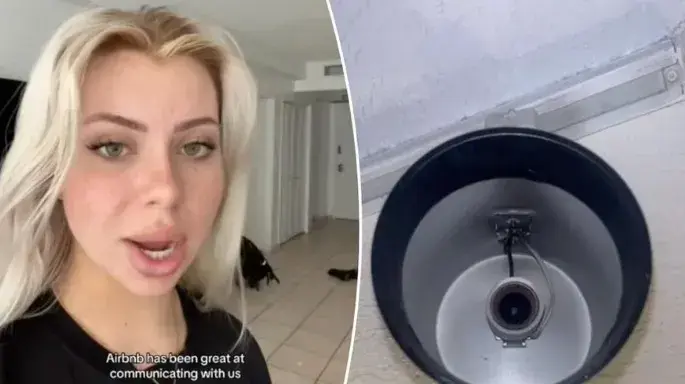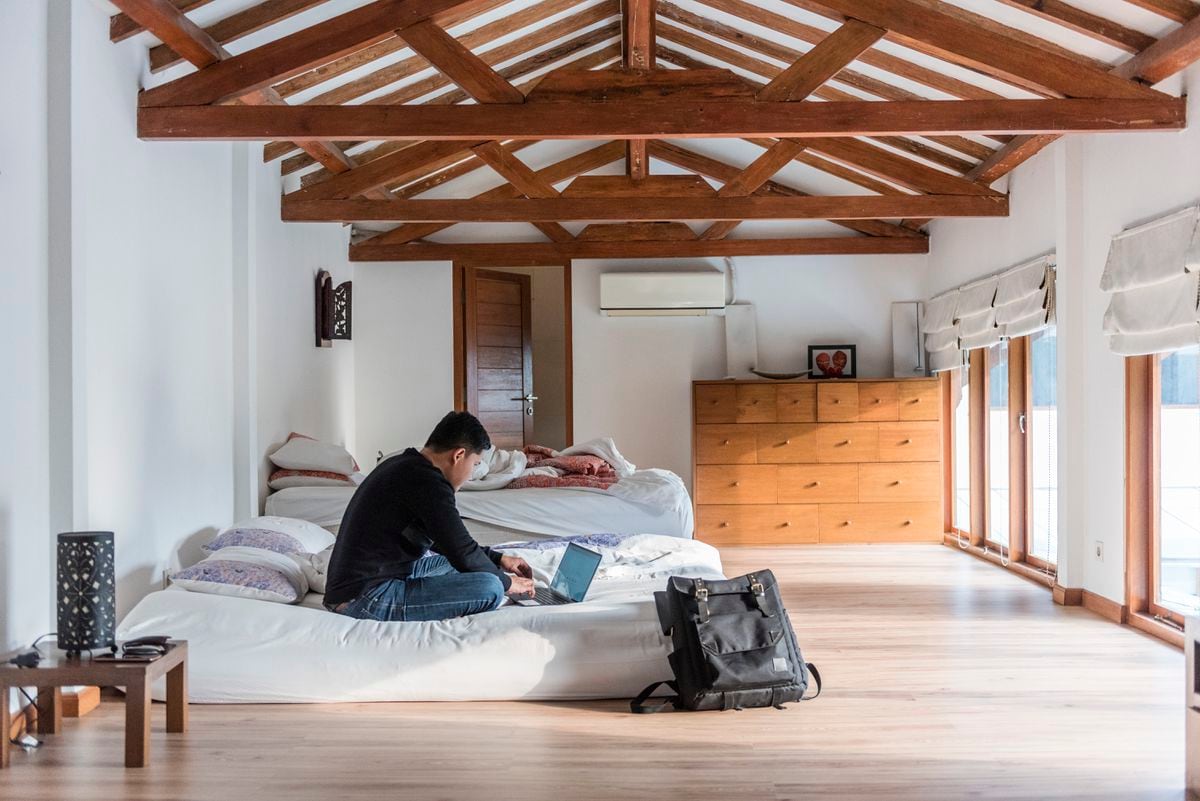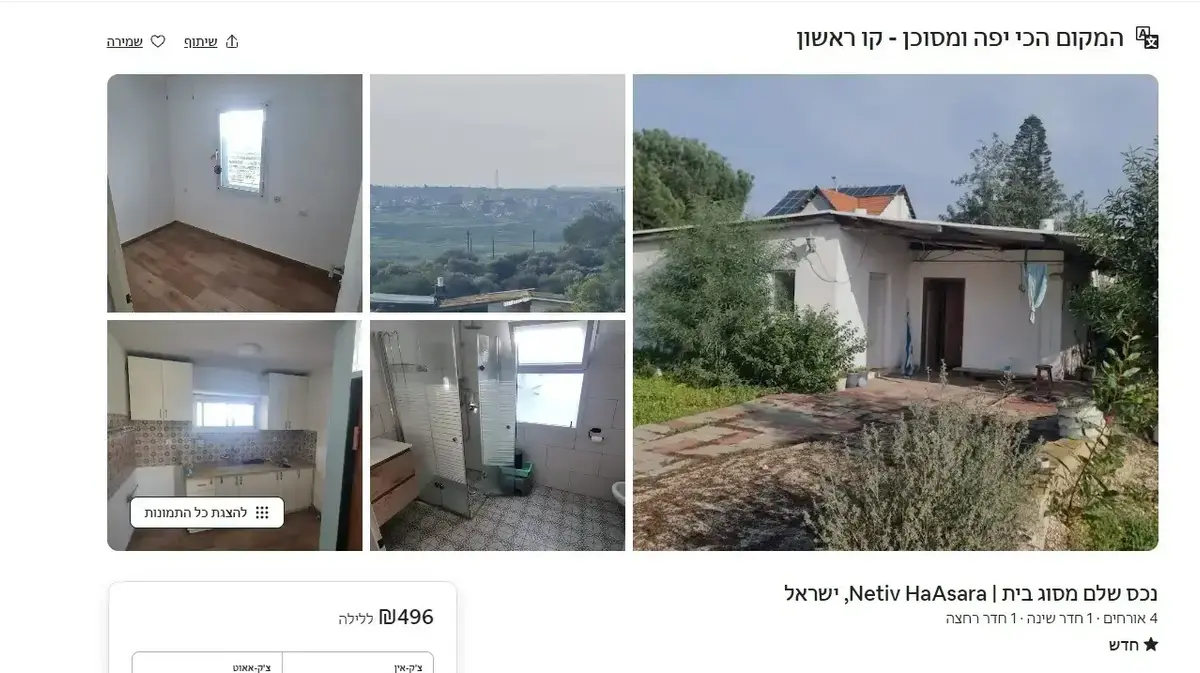From apartments that do not exist to landlords and guests who sexually harass, murder or devastate rooms: Airbnb provides hundreds of thousands of housing opportunities, with users sometimes getting wrong. The group also tries to prevent such horror stories with the help of data analyzes and risk forecasts.
Scoring software that classifies people's trustworthiness and personality could detect potential risk persons in advance. Patent documents, to which the "Evening Standard" has now drawn attention, disclose how such a method could theoretically work.
It is unclear whether similar software is actually used by Airbnb - and if so to what extent. The patent application comes from the start-up Trooly, a company that Airbnb acquired in 2017.
Does the landlord suit the guest?
As stated in the Trooly patent description, software should identify documents and information, derive behavioral and personality traits from them and calculate a "trustworthiness or compatibility score of the person" based on a point system. The latter, according to the description, calculates how compatible two people are, in the case of services such as Airbnb such as landlord and guest. Relationships between people can also influence the ranking - those who are networked with people who have high values, for example, tend to be classified as more trustworthy.
Information from commercial and government sources such as criminal records, but also social media content and blogs should help to calculate whether someone tends to "unreliable" personality traits. This could include characteristics such as malignancy, anti-social tendencies, neuroticism, narcissism or psychopathy. In contrast, categories such as openness, extrovertedness or tolerance are considered positive.
Evidence that indicates that someone has fake profiles or provides false information also has a negative impact on the rating. Also punished are users who link the software with terms, photos or videos that indicate drug and alcohol consumption, and people who are connected to inflammatory websites or organizations or sex work. If you rage on your social media profiles too often and post negative comments online, you also run the risk of receiving a bad rating.
Social media traces as a background check
Software that promises to predict personality and behavior while also evaluating social media content is already used in many areas - from advertising and finance to political campaigns. Credit companies try to calculate the likelihood of someone repaying their loan. In the course of the Cambridge Analytica scandal, data from Facebook users and their friends had been read out using a personality test app in order to draw conclusions about their personality from the likes and other online details and to create voter profiles.
The start-up Trooly, from which the patent documents originate, was founded in California in 2014 by three Indian entrepreneurs. According to media reports, Airbnb was one of the first customers in 2015.
In countries such as India or China, social media analyzes have been helping to measure creditworthiness and trustworthiness for a long time and on a much larger scale than in Germany, also because, in addition to relaxed data protection laws, there are still no comprehensive, classic credit agencies such as Schufa - and because there are many Although people don't have a credit card or an account, they usually have a smartphone.
Trooly provides "services that verify, test, and predict trustworthy relationships and interactions," the company describes. "Our machine learning technology synthesizes real-time digital footprints to provide rich insights - far beyond old-school background checks, credit checks, and risk management tools." Ratings and evidence would be delivered in around 30 seconds and cost less than a dollar per request.
A spokesman for the purchase of the start-up by Airbnb commented in 2017: "We will continue to work together to improve trust between strangers on, outside and across the platform."
Global database with psycho-profiles
It is not known whether and if so how software currently used by Airbnb differs from the method described in the patent. Airbnb has not yet answered a SPIEGEL request.
"With every Airbnb booking, the risk is assessed before confirmation," says the group's website so far. "We use predictive methods and machine learning to instantly evaluate hundreds of signals that help us identify and prevent suspicious activity before it occurs." The company also globally compares hosts and guests with lists of authorities, terrorists and sanctions, and "the background is also being checked" in the USA.
It goes without saying that the company is trying to expose fraudsters. What is open, however, is the way Airbnb scans its users and, for this purpose, also lets social media profiles be crawled - and how accurate the software is.
"At least ethically questionable"
Whether personality assessments work reliably using algorithms is at least controversial. "From a scientific point of view, I think that's very daring," Matthias Spielkamp from civil rights organization AlgorithmWatch told SPIEGEL. He also considers the information in the patent on the process to be "extremely thin". "There is nothing about the whole methodology, and how reliably it should work," Spielkamp said. He also considers it "legally unclear" whether Airbnb should use such a procedure at all.
"Scoring mechanisms are often used by companies and government agencies - more often than users are often aware of," says Spielkamp. "Even if it were legally okay to use such procedures, it would be ethically questionable if users didn't know about it." According to Spielkamp, Airbnb's data protection declaration - in contrast to the information on the website - contains no explicit reference to the use of such scoring software.
"It would be a huge problem if a globally active, influential player like Airbnb built a worldwide database with psycho-profiles that are potentially wrong," says Spielkamp.



/cloudfront-eu-central-1.images.arcpublishing.com/prisa/PHW4JZYXX5CMRJOUD7MDB56UQY.jpg)











